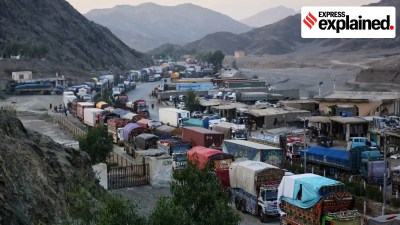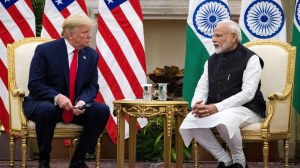Olympics — A long way from Kabul to Sydney
Islamabad, August 17: It's a long way from Kabul to Sydney, but Afghanistan's ruling Taliban are trying to get a ban overturned so they ca...

Islamabad, August 17: It’s a long way from Kabul to Sydney, but Afghanistan’s ruling Taliban are trying to get a ban overturned so they can send a team to the 2000 Olympic Games.
With an annual sports budget of about $30,000 dollars, a dress code that bans the wearing of shorts, an ongoing civil war and severe restrictions on women, Afghanistan’s case for taking part in the Olympics seems weak.
Despite these problems, officials from the ruling Taliban have appealed to the International Olympic Committee (IOC) to overturn a suspension that effectively stops Afghan athletes from competing in Sydney next month.
The IOC suspended the Taliban’s Olympic committee last year, saying the body had no control over sports in the country, but it offered to try to find ways for any athletes from the war-torn country to compete as individuals.
Taliban Olympic Committee head Abdul Shukoor Mutmaen said that the IOC had contacted him earlier this year, saying Afghan athletes could compete but without the Taliban flag.
Mutmaen said he rejected that and added he was still waiting for a reply to his request for Afghanistan to send a team.
“Participation of Afghan sportsmen without representing the Emirate (Afghanistan) and its flag will mean nothing. We will not send anyone on an individual basis,” Mutmaen said.
“Our athletes are eagerly waiting for invitations and answers,” he added.
Mutmaen has to overcome an image problem that took another hit last month when the religious police of the ruling Taliban arrested visiting Pakistani football players and shaved their heads because they were wearing shorts.
The movement regards wearing shorts as a violation of its strict Islamic dress code.
Although Mutmaen apologised for the arrests, saying they were the result of over-zealous local officials, the incident reinforced negative stereotypes about the Taliban, recognised as the legitimate government of Afghanistan by only neighbouring Pakistan, Saudi Arabia and the United Arab Emirates.
The Taliban, who have vowed to create the world’s purest Islamic state, has angered western governments and human rights groups by restricting the movements of women and ordering them to wear an all-enveloping “burqa” veil while going out.
After 20 years of war and civil fighting, it is not known if Afghanistan has any National or regional level competitors, let alone any Olympic calibre athletes.
There is no infrastructure left in the country, gyms have no windows, stadiums are used for meetings — in some cases even for public executions –and the Olympic committee has an annual budget of just a little more than $30,000.
Two Afghan athletes who did make it to the Atlanta Olympics four years ago, ended up as hard-luck stories, and are no longer thought to be living in Afghanistan.
Light-middleweight boxer Mohammad Jawid Aman arrived too late in Atlanta to make the mandatory weigh-in and draw and was not allowed to compete.
But it is not even clear whether boxers from Afghanistan, even if invited to Sydney, could compete since the Taliban have banned all males from cutting their beards.
Boxers are not allowed to have beards in international tournaments, and three Afghan boxers were stopped from competing in a competition in the Pakistani port city of Karachi in 1998 because they had beards.
Aman was clean-shaven when he trained in Kabul just before the Taliban seized the Capital in September 1996. Officials in Kabul say he moved to Canada after the Atlanta Games.
Unlike Aman, Abdul Baser Wasigi was at least able to compete, but the marathoner, with a personal best of two hours 33 minutes, injured a hamstring muscle shortly after arriving in Atlanta and was forced to stop training for two weeks before the race.
Wasigi, who now lives in the Pakistani town of Peshawar near the border with Afghanistan, still competed and finished the race, limping most of the way and finishing more than two hours 10 minutes behind the winner.





- 01
- 02
- 03
- 04
- 05


























